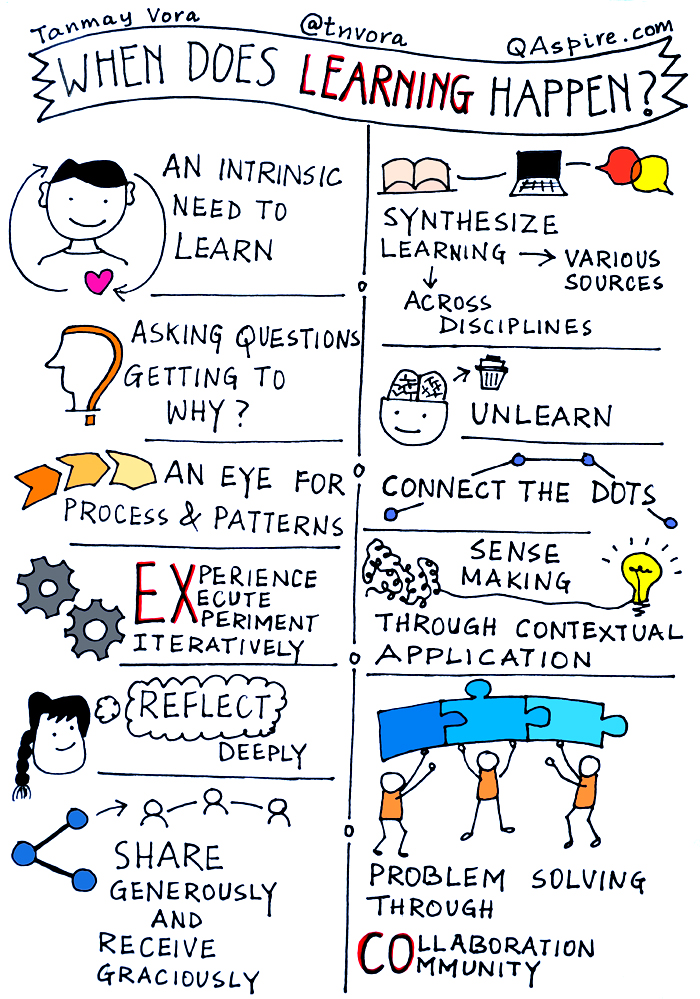When Does Real Learning Happen?
Tanmay Vora
Updated on
Learning, the real learning, happens…
- When you are intentional about learning
- When you are driven by an intrinsic need to advance and not only by external triggers and rewards.
- When you ask more questions to get to the WHY of things (and then to what and how)
- When you carry an open frame of mind that is receptive
- When you look for process and patterns even in discrete situations
- And when you use your understanding to connect the dots and look at a larger picture
- When you enjoy the process of learning without getting too anxious about the results and goals.
- When you are self-aware (of your own beliefs, thoughts, values and perceptions)
- When you experience, execute, iterate and test your hypothesis
- When you reflect deeply on your experiences
- And when you share your lessons (and process) with others generously so that they can learn (and also contribute)
- When you surround yourself with passionate learners, mentors and coaches (and be a part of a learning community)
- And engage others (community) meaningfully in collaborative problem solving
- When you are able to collect, synthesize and process information from varied sources
- When you solve interesting problems
- And be able to create a map on the go (rather than relying on tried and tested methods)
- When you overcome the fear of making mistakes
- When you think critically
- When you execute in short bursts, fail small and realign your approaches
- When you Unlearn (let go of the old ways of thinking and doing)
- When you apply lessons in line with unique needs of the context
- When you synthesize your lessons and apply meta-lessons in across disciplines
- When you are generous enough to share what you know, teach, coach and mentor others
- When you are comfortable with inherently ambiguous nature of learning (and ability to hold two contrasting thoughts without being judgmental)
- When you are comfortable also with the emergent nature of learning
- When you don’t allow your learning to crystallize but keep it fluid and evolving.
- When you truly start believing that self-directed and self-initiated learning is the best way to learn (for a lifetime).

Previous post
Leaders Need Three Kinds of FocusNext post
Leadership: Start With Trust2 Comments
Comments are closed.
I love this!!! Can i use it in my community of practice for trainers? I would like to start a table discussion around each of those topics
Thanks a lot for the continuing inspiration!
Can you share what sources you used? While these make sense logically it helps to have citations. Thanks.